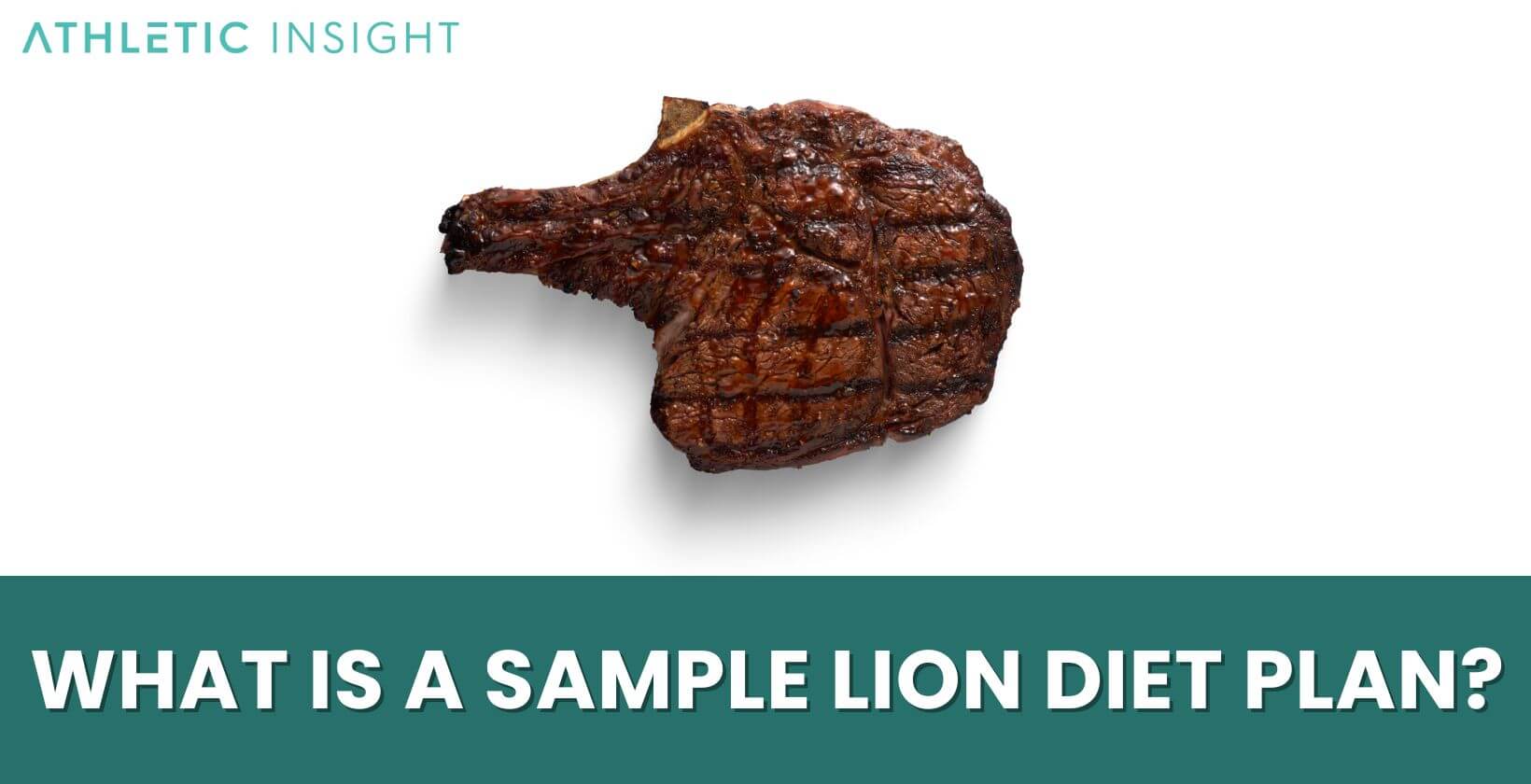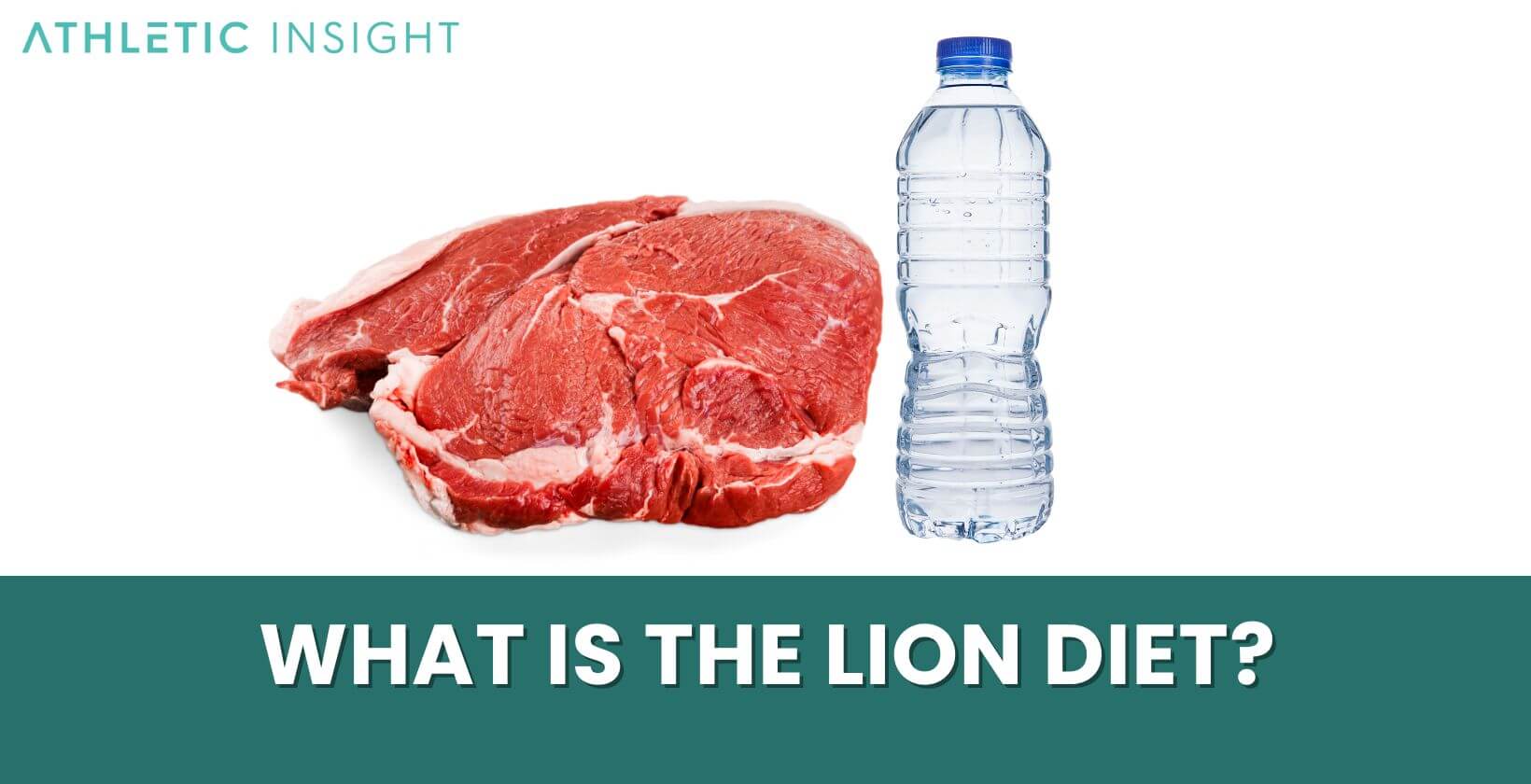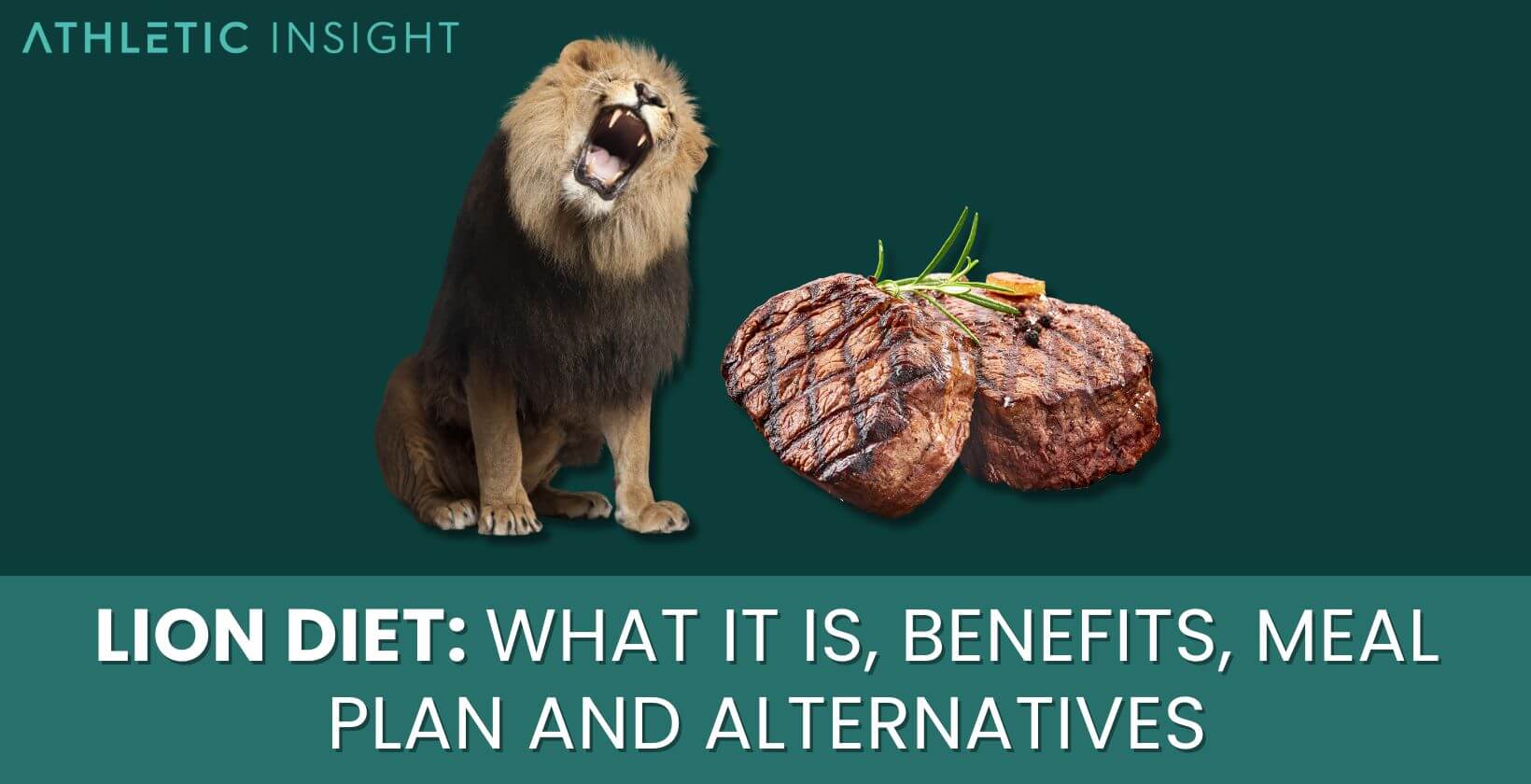Ever wondered what fuels the king of the jungle? Lions, with their majestic manes and powerful roars, have a diet that’s as fascinating as their persona. In the wild savannas where they reign, these apex predators have a specific menu that ensures their survival and dominance, primarily consisting of raw meat.
This article dives into the carnivorous world of lions, shedding light on what they eat, how they hunt, and the intriguing dynamics of their feeding habits. From solitary hunts in the dead of night to coordinated attacks by a pride, you’ll get an insider’s look into the dietary regimen that keeps these magnificent creatures at the top of the food chain.
Whether you’re a wildlife enthusiast or simply curious, understanding the lion’s diet offers a unique glimpse into the natural order of the animal kingdom.
What is the Lion Diet?
The Lion Diet is a restrictive eating plan focusing exclusively on beef, salt, and water. Advocates suggest that this diet can eliminate dietary triggers responsible for various health issues, attributing improvements in autoimmune diseases and mental health to its simplicity and elimination of potential allergens and irritants found in other foods.

While some individuals report positive outcomes, it’s crucial to approach this diet with caution. Its extreme restriction limits essential nutrients and dietary diversity, which are key components of a balanced diet.
How Does the Lion Diet Work?
In the wild, lions’ diets consist mainly of meat. They are apex predators, putting them at the top of the food chain. This carnivorous lifestyle means they hunt other animals for food. Lions aren’t picky eaters; they consume a variety of prey, ranging from small birds to large mammals like wildebeests and zebras.
The lions hunting method is a blend of stealth and power, leveraging their strong muscular bodies and quick reflexes. After a successful hunt, lions feast, prioritizing the consumption of every part of their catch. This ensures they receive a balanced intake of nutrients necessary to maintain their strength and health.
For humans looking to implement this carnivorous diet, one simply needs to get their calories from meat. In addition to meat, salt and ample water would be needed.
What are the Health Benefits of the Lion Diet?
Understanding the lion diet’s health benefits unveils its role in maintaining the lion’s physiological and muscular prowess. Rich in proteins, this diet fosters muscle development and repair. Lions ingest a considerable amount of iron from their carnivorous meals, crucial for preventing anemia and promoting healthy blood circulation. Their diet, laden with essential fatty acids found in their prey, supports brain function and skin health.

The Lion Diet for humans is claimed to offer several health benefits, primarily due to its elimination of potential dietary irritants and allergens. These benefits include:
- Reduced Inflammation: By limiting food intake to beef, salt, and water, proponents suggest the diet can decrease systemic inflammation, benefiting individuals with autoimmune conditions.
- Improved Digestive Health: The simplicity of the diet may aid in digestive issues, as it eliminates common irritants found in processed foods, grains, and dairy.
- Enhanced Mental Clarity and Mood Stability: Some followers report improvements in mental health symptoms, attributing these changes to the removal of food-triggered mood fluctuations.
- Identification of Food Sensitivities: The restrictive nature allows individuals to more easily identify foods that cause adverse reactions when gradually reintroducing other foods.
What are the Health Risks of the Lion Diet?
While the lion diet boasts significant benefits, there are inherent health risks you should be aware of. Nutritional imbalances are a primary concern, as solely consuming meat may lead to deficits in essential vitamins and minerals typically found in a more varied diet. This could precipitate conditions like scurvy, due to a lack of vitamin C, or osteoporosis from insufficient calcium intake.
Parasitic infections from raw or undercooked meat present another risk. Consuming such meat can expose you to pathogens like Toxoplasma gondii or E. coli, potentially causing severe gastrointestinal distress or worse.
Also, a high intake of saturated fats, common in red meat, might escalate your likelihood of developing cardiovascular diseases by elevating cholesterol levels. The potential for foodborne illnesses also increases with a diet heavily reliant on animal protein, urging meticulous handling and preparation methods to mitigate these risks.
How to Implement the Lion Diet?
To implement the Lion Diet, you start by limiting your food intake to beef, salt, and water. Begin with selecting high-quality beef, focusing on grass-fed and organic options if possible, to ensure you’re getting the best nutrient profile. Use salt to taste, preferably unrefined salts like Himalayan pink salt or sea salt, to add essential minerals. Drinking ample water is also key to support hydration and overall health.
The diet emphasizes eating to satiety, listening to your body’s hunger cues rather than sticking to a strict meal schedule. It’s common to eat two to three times a day, with some opting for a more intermittent fasting approach by narrowing their eating window.
Given the diet’s restrictive nature, it’s crucial to monitor your health closely. Regular check-ups with a healthcare provider can help track your nutrient levels and overall well-being, adjusting as needed to ensure you’re not missing out on essential nutrients. Lastly, patience and a gradual transition might ease the adaptation process, allowing your body to adjust to the new dietary regimen.
Who Should Consider the Lion Diet?
The Lion Diet may be considered by individuals experiencing unresolved autoimmune disorders, chronic digestive issues, and persistent skin conditions, who have not found relief through conventional dietary adjustments or medical treatments. It’s often sought out by those looking to eliminate potential dietary triggers to identify food sensitivities, as the diet’s restrictive nature helps in isolating variables. People suffering from severe allergies or intolerances to a wide range of foods might also explore this diet as a means to simplify their intake and reduce exposure to allergens.
How Many Calories Should You Consume on the Lion Diet?
Caloric intake on the Lion Diet varies based on your activity level and goals. Typically, a higher protein diet like this might range from 2,000 to 2,500 calories daily for adults, but it’s essential to tailor it to your needs and health goals.
What Are the Best Practices to Follow on the Lion Diet?
When following the Lion Diet, prioritize high-quality, grass-fed beef to maximize nutrient intake, as this type of beef generally contains higher levels of omega-3 fatty acids and vitamins. Incorporate a variety of beef cuts, including organ meats, to ensure a broader spectrum of nutrients, particularly those that might be scarce in muscle meat alone. Use unrefined salt to season your meals, aiding in electrolyte balance and providing essential minerals.
Stay well-hydrated with water, the only beverage recommended on this diet. Monitoring your health through regular check-ups is crucial, as this diet is highly restrictive and may lead to nutrient deficiencies.
- Prioritize fresh, high-quality meat
- Ensure proper cooking to avoid foodborne illnesses
- Balance your diet with essential fatty acids for optimal health
- Use refined salt and stay well hydrated
How Simple Is It to Follow the Lion Diet Program?
The Lion Diet is simple, focusing on just three components: beef, salt, and water. This simplicity eliminates the need for meal planning complexity, as it narrows down food choices to a minimal list. However, the practicality of adhering to such a restrictive diet poses challenges.
The Lion Diet demands a significant shift from conventional eating patterns, requiring a strong commitment to maintain this strict regimen. The diet’s limitations on food variety can also make social dining and travel more complicated. Most social dining events revolve around food containging beef, at least in the US, so the Lion Diet remains simple to follow.
What is a Sample Lion Diet Plan?
A sample Lion Diet plan would look quite straightforward due to its restrictive nature, focusing solely on beef, salt, and water.

Here’s an example of what a day might look like:
- Breakfast: Skip breakfast for those who prefer intermittent fasting, or have a serving of lean beef steak seasoned with Himalayan pink salt.
- Lunch: Grilled ribeye steak, seasoned with sea salt to taste.
- Dinner: Slow-cooked beef shank or roast beef, seasoned with unrefined salt. Optionally, include a variety of beef cuts, such as liver or other organ meats, to incorporate a wider range of nutrients.
- Throughout the Day: Drink plenty of water, aiming for at least 8 cups (about 2 liters) to stay hydrated.
This plan emphasizes the importance of varying beef cuts and preparation methods to optimize nutrient intake and maintain interest in the diet. Remember, consulting with a healthcare professional before starting such a restrictive diet is crucial to ensure it aligns with your health needs and goals.
What Are the Best Recipes for the Lion Diet?
For the Lion Diet, the best recipes are the simple, yet savory, options. A favorite is seared ribeye steak, seasoned lightly with salt. Consider slow-cooked beef shanks for a tender meal, utilizing a slow cooker to preserve the nutrients and enhance flavor.
What Foods Can You Eat on the Lion Diet?
On the Lion Diet, you can eat only beef, salt, and water. This includes all cuts of beef, such as steak, ground beef, and organ meats like liver, seasoned solely with unrefined salt. The diet’s strict nature excludes all other foods, beverages, seasonings, and additives, emphasizing a focus on simplicity and elimination of potential dietary triggers to address specific health issues.
What are the Alternatives to the Lion Diet?
Alternatives to the Lion Diet include the carnivore diet, which allows all animal products; the Paleo diet, focusing on whole foods from the paleolithic era; and the ketogenic diet, emphasizing low-carb, high-fat intake. These diets offer more variety and flexibility, potentially providing similar health benefits without the Lion Diet’s extreme restrictions. They cater to those seeking to reduce processed foods and sugars while still supporting a broader range of nutritional needs.
Carnivore Diet
In the Carnivore Diet, you eat only animal products. It’s like the Lion Diet but a bit broader. You can have eggs and some dairy, like cheese and butter. It’s all about meat, fish, and animal fats. No plants here.
Keto Diet
The Ketogenic Diet focuses on high fat, moderate protein, and very low carbs. You’ll eat meat, fish, eggs, but you can also have low-carb veggies and some nuts. It’s for keeping your body in a state called ketosis. This means your body burns fat for fuel.
Paleo Diet
Going Paleo means eating like ancient humans. You’ll consume meat, fish, fruits, and vegetables. No processed foods, grains, or dairy. It’s about whole foods, getting nutrients the natural way. The Paleo Diet encourages a balance, mixing meats with plant-based food.
What are the Facts about the Lion Diet?
The Lion Diet is an elimination diet that restricts food intake to beef, salt, and water. It’s designed to identify food sensitivities by removing potential dietary triggers. Proponents claim it can alleviate symptoms of autoimmune diseases, mental health issues, and other chronic conditions. However, its extreme restrictiveness raises concerns about nutritional deficiencies and long-term health impacts.
Can the Lion Diet Help Improve Chronic Health Conditions?
The Lion Diet shows evidence that it provides relief for individuals with autoimmune diseases, digestive issues, and skin conditions by eliminating dietary triggers through a strict regimen of beef, salt, and water. However, evidence of its effectiveness is largely anecdotal, and its extreme restrictiveness could pose nutritional risks.
What Is the Role of Animal-Based Foods in the Lion Diet?
In the Lion Diet, animal-based foods, specifically beef, play a central role by being the sole source of nutrition. This diet emphasizes consuming beef for its protein, essential fats, and various nutrients, aiming to eliminate dietary triggers found in other foods. Beef’s inclusion is based on the belief that it can provide all necessary nutrients while minimizing the risk of food sensitivities and allergic reactions associated with a broader diet.
How Does the Lion Diet Compare to Traditional Weight Loss Diets?
The Lion Diet diverges significantly from traditional weight loss diets by eliminating virtually all food variety, focusing exclusively on beef, salt, and water. Unlike diets that often incorporate a balance of macronutrients and a wide range of foods to ensure nutritional adequacy, the Lion Diet’s extreme restriction is aimed at identifying food sensitivities, not primarily for weight loss. This approach can lead to rapid weight changes but raises concerns about long-term nutritional sufficiency and sustainability.
Are There Any Specific Exercise Recommendations to Complement the Lion Diet?
No, the Lion Diet itself does not come with specific exercise recommendations, as its primary focus is on dietary changes to identify and eliminate food sensitivities. However, individuals following any diet, including the Lion Diet, may benefit from incorporating a balanced exercise routine that includes strength training, cardiovascular activities, and flexibility exercises to support overall health and well-being. It’s important to adjust exercise intensity and volume based on individual health status, nutritional intake, and energy levels, especially when following a highly restrictive diet like the Lion Diet.
How Can Someone on the Lion Diet Handle Social Events and Dining Out?
Exploring social events and dining out requires planning. Look for meat-based dishes and inquire about ingredients to stay within the diet’s guidelines.
Key Takeaways
- Lions maintain their dominance in the wild with a carnivorous diet, primarily consisting of a variety of meats from birds to large mammals like wildebeests and zebras, emphasizing the importance of protein for strength and health.
- The health benefits of a lion-like diet include muscle development, prevention of anemia, support for brain function and skin health, and a robust immune system, thanks to a balanced intake of essential nutrients.
- However, adopting a diet solely focused on meat poses risks such as nutritional imbalances, potential for parasitic infections, elevated cholesterol levels, and increased risk of foodborne illnesses.
- The Lion Diet could be appealing for those seeking high protein intake and reduced processed food consumption, with caloric needs tailored to individual activity levels and health goals.
- Simple, meat-based meals like seared ribeye steak or slow-cooked beef shanks are recommended, with an emphasis on high-quality, grass-fed, and wild-caught meats for optimal nutrient density.
- Alternative diets like the Carnivore Diet, Keto Diet, and Paleo Diet offer different approaches to prioritize animal products or balance meat intake with plant-based foods, catering to various dietary preferences and health goals.



